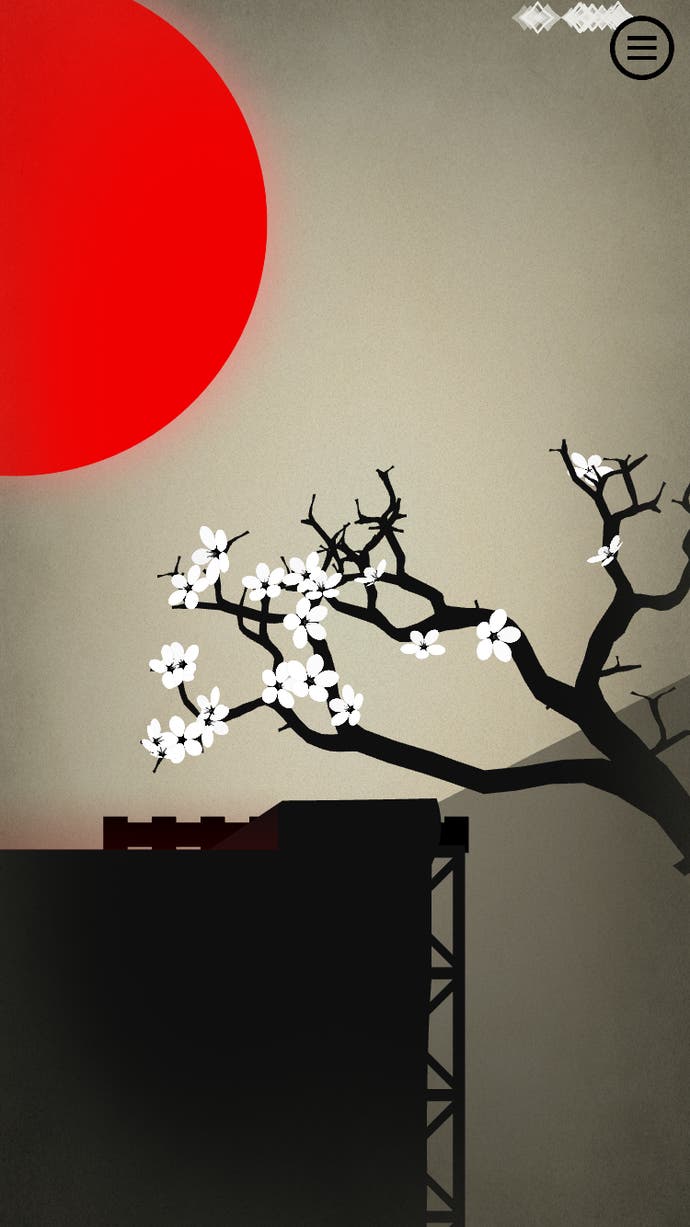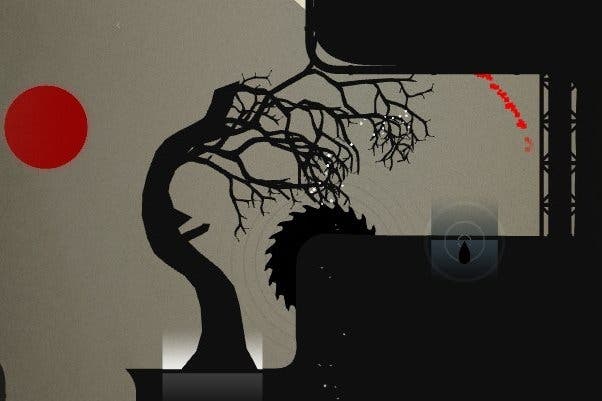Skill tree: Prune and the quiet ecstasy of the botanist
The constant gardener.
In video games the act of creation and the act of destruction are usually closely allied. In Minecraft one button builds and another breaks. So too in the plastic blockbusters of the LEGO series, where a mini-figure's flailing arm can smash a car, house or space-rocket into a shower of bricks, then follow up with mystical wave that rebuilds the debris into a new object, for new purpose. In Sim City et al you must clear and level the land before laying your first road or power plant. In Tetris you build a wall to destroy a wall to build a wall again. In first person shooters, you remove foes in order to gain ground.
In Prune, an elegant, loose puzzle game for iOS made by former Call of Duty designer Joel McDonald, destruction and growth are more closely allied than ever. Here, like the tender, patient gardener, you must snip the branches of a sapling as it shoots from the ground in order to encourage healthy growth elsewhere on the plant and, eventually, flowering.

You begin with a small, light-starved patch of glowing ground. An upward swipe of the finger will pull a silhouetted shoot from the soil. The process, once begun, cannot be stopped. Branches begin to sprout, twist and elongate in random yet predictable ways. Soon growth slows, quickened again only when you snip off a branch, an act that replenishes the plant's store of energy, and redirects growth into its remaining limbs. In this way you can shape and lure the tree, drawing it in a specific direction toward a life-giving ray of light. Touch the light and the relieved branch will begin to flower. Harvest enough petals and the stage is complete.
This central aim remains a constant throughout the game, but is made more intricate with the addition of dangers such as glowing orbs (which, if touched, will cause your tree to catch fire and progressively die, from the branch slowly down to the root), or buzz saws, which will rasp through the wood. Later, you must grow your trees in multiple directions, using one branch to, for example, push against a pressure pad to create an opening through which another branch can then stretch and flower. Like its trees, Prune unfurls in elegant, hypnotic ways.
Unlike, say, the art of bonsai, your aim in Prune is not to encourage beauty (although beauty is often a by-product of your tinkering). Rather you encourage life. The game is in no rush to hurry you from one stage to the next. Its rhythms match those of its subject matter. Here, effect follows cause only ponderously (the camera, for example, takes the time to follow your plant's falling petals, to enjoy the moment of noiseless, miraculous botanical triumph). Once you meet your petal target, you move on only when you're ready. This lazy tempo provides pockets of space in which to reflect. It's something close to the experience of the bonsai crafter, who in his miniature trees sees his resilience, persistence and effort reported. Here too you have chance to ponder your triumphs and mistakes, and see the ways in which you have helped nature, and the ways in which you have hindered its ambitious advances.
The game's lessons are simple and familiar. In Prune we see that often parts of us have to die for other parts to flourish. We see the value of tenacity when faced with adversity. We see that, with care, it is possible to blossom wherever we find ourselves, even in the most seemingly difficult of starting points. We see the ways in which humankind stands in opposition to nature (the factories, the pollution, the buzz saws) and the ways in which humankind can be nature's steward. We find that, in the words of Jeff Goldblum, life finds a way. Wilted clichés all, perhaps, but in this context they seem freshly alive, freshly potent.
There was a time when it seemed as though Apple's platform would provide rich, fertile ground for this kind of video game - singular, tailored, elegant, crisp. For complicated reasons (ones that, perhaps, still nobody fully comprehends but that are almost certainly to do with commerce) iOS bore far fewer of this type of fruit than hoped or expected. Prune proves that it is still possible for the joyfully experimental to flourish here among the ports, the knock-offs and the free-to-play titans that have come to dominate the mobile landscape. With encouragement, there may yet be more to come.









